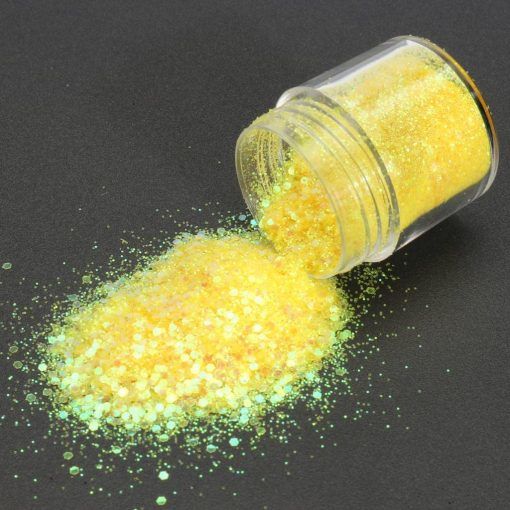The exploration of Potential benefits of DMT for liver health has garnered significant interest in recent years. Dimethyltryptamine, commonly known as DMT, is a compound that has sparked curiosity in the scientific community for its potential benefits in liver health. This article will delve into the possible effects of DMT on liver diseases, including cirrhosis and hepatic encephalopathy, and evaluate the current research on its therapeutic applications.
Understanding DMT and Its Mechanism
DMT is a naturally occurring psychedelic compound found in various plants and animals. It is most well-known for its powerful hallucinogenic properties when consumed. However, beyond its psychedelic effects, researchers are exploring DMT’s potential therapeutic benefits for a range of medical conditions.
How DMT Works
DMT primarily acts on the serotonin receptors in the brain, particularly the 5-HT2A receptor. This interaction leads to altered states of consciousness and perception. Interestingly, serotonin receptors are not limited to the brain; they are also found throughout the body, including the liver. This opens up the possibility of DMT influencing liver function through these pathways.
DMT and Liver Disease
Liver diseases, such as cirrhosis and hepatic encephalopathy, are significant health concerns worldwide. Traditional treatments often focus on managing symptoms and slowing disease progression. However, they do not cure the underlying condition. This has led to interest in compounds like DMT that might offer new therapeutic avenues.
DMT and Cirrhosis
Cirrhosis is a chronic liver disease characterized by the replacement of healthy liver tissue with scar tissue. This disrupts liver function and can lead to liver failure. Some preliminary studies suggest that DMT might have anti-inflammatory and regenerative properties, which could be beneficial in managing cirrhosis.
For example, in animal studies, DMT has shown potential in reducing liver inflammation and promoting the regeneration of liver cells. This is significant because inflammation is a key driver of liver damage in cirrhosis. If DMT can effectively reduce inflammation, it might slow the progression of cirrhosis and improve liver function.
DMT and Hepatic Encephalopathy
Hepatic encephalopathy is a decline in brain function resulting from severe liver disease. It occurs when the liver is unable to remove toxins from the blood, leading to their accumulation in the brain. The condition can cause confusion, altered consciousness, and in severe cases, coma.
Research on DMT’s effects on hepatic encephalopathy is still in its infancy. However, given DMT’s interaction with serotonin receptors in the brain, there is potential for it to influence neurological outcomes in liver disease. Some researchers speculate that DMT might help in modulating brain inflammation and improving cognitive function in patients with hepatic encephalopathy.
Current Research and Findings
While the potential benefits of DMT for liver diseases are intriguing, it is important to note that research is still in the early stages. Most studies have been conducted on animals, and human clinical trials are needed to verify these findings.
Animal Studies
In rodent models of liver disease, DMT has been shown to reduce liver fibrosis, a key feature of cirrhosis. Additionally, some studies indicate that DMT can decrease levels of pro-inflammatory cytokines, which are molecules that promote inflammation in the liver.
Furthermore, DMT appears to promote liver regeneration by increasing the proliferation of liver cells. This is particularly promising for conditions like cirrhosis, where the liver’s ability to regenerate is compromised.
Human Studies
Human research on DMT’s effects on liver health is limited. However, some observational studies suggest that individuals who use DMT recreationally report improvements in certain liver-related symptoms. These anecdotal reports, while not scientifically rigorous, provide a basis for further investigation.
Challenges and Considerations
Despite the promising findings, several challenges remain in understanding DMT’s role in liver health.
Legal and Ethical Concerns
DMT is classified as a Schedule I controlled substance in many countries, meaning it is illegal to produce, possess, or distribute. This classification poses significant barriers to conducting research and developing therapeutic applications.
Safety and Side Effects
DMT is known for its potent psychedelic effects, which can be disorienting and intense. While these effects are typically short-lived, they can pose safety concerns, particularly for individuals with mental health conditions.
Furthermore, the long-term effects of DMT use are not well understood. More research is needed to assess the safety and efficacy of DMT as a treatment for liver diseases.
The Future of DMT in Liver Health
The potential of DMT to treat liver diseases is an exciting area of research. If future studies confirm its efficacy and safety, DMT could become a valuable tool in managing conditions like cirrhosis and hepatic encephalopathy.
Moving Forward
Researchers are calling for more comprehensive studies, including human clinical trials, to explore DMT’s therapeutic potential fully. Collaboration between scientists, healthcare providers, and policymakers will be essential in navigating the legal and ethical challenges associated with DMT research.
In conclusion, while the current research on DMT and liver health is promising, it is still in the exploratory phase. As our understanding of DMT’s effects on liver diseases grows, it may open new avenues for treatment and improve outcomes for patients suffering from these debilitating conditions.
